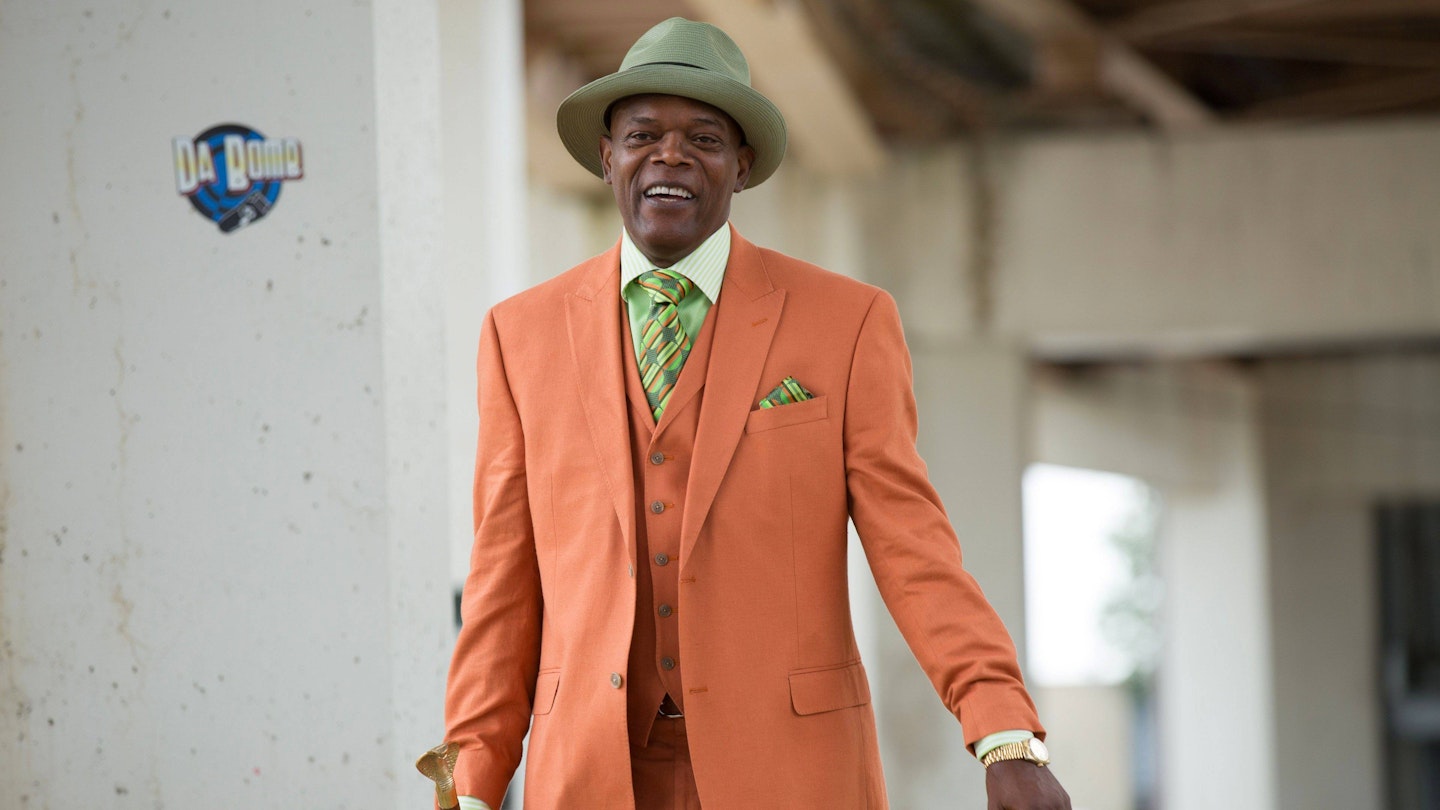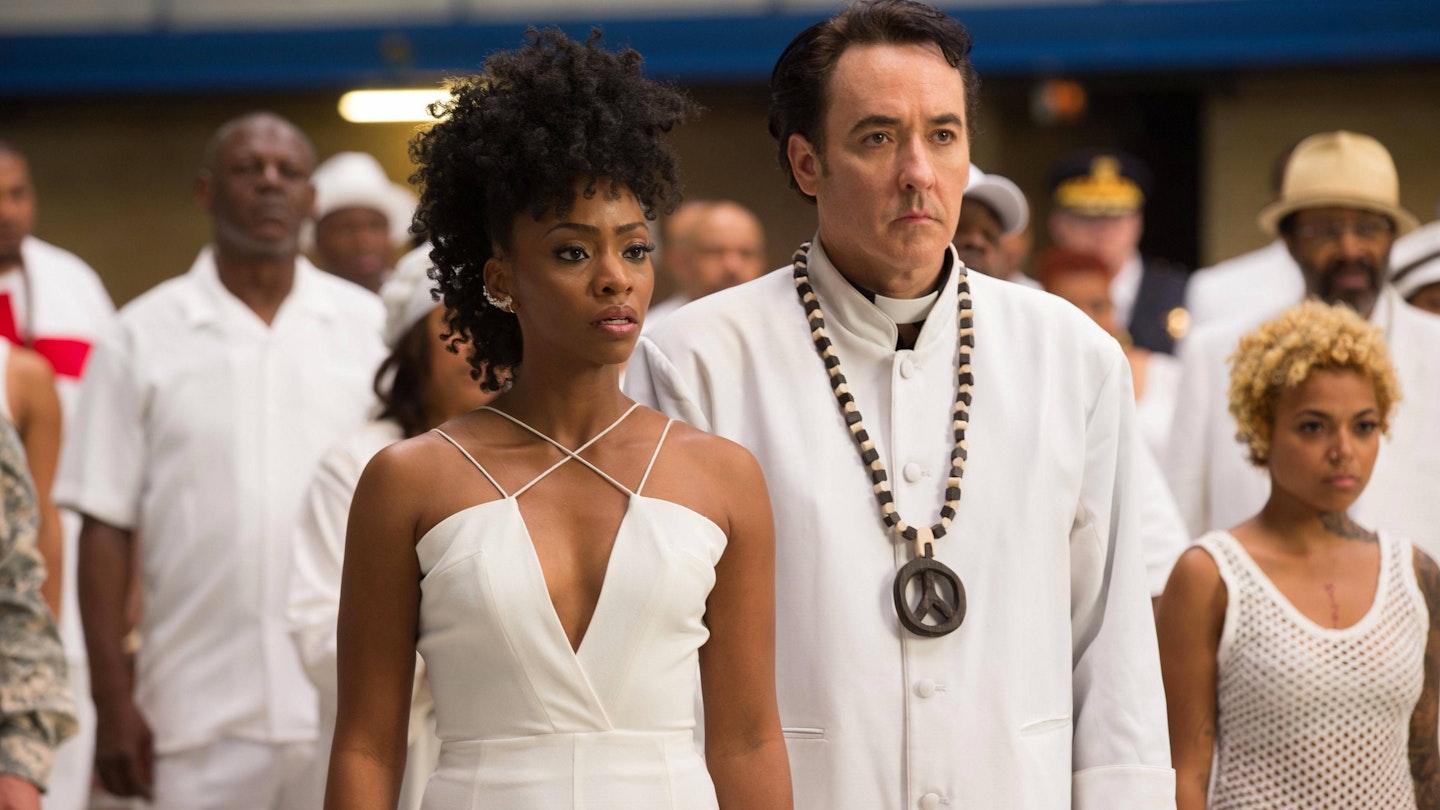For three decades Spike Lee has made films that shout against the imbalances and injustices inherent in being black in America. He was doing it when very few others were, always passionately, sometimes electrifyingly, occasionally incoherently. When you’ve been part of an argument for that long, your voice can become just part of the growing roar, losing distinction as others rise to join it. With Chi-Raq, by some distance his most exciting work in years, Lee shows he still has plenty to say and still has ways, as a filmmaker, to surprise, perhaps invigorated by a world that has presented whole new horrors to talk about.
Lee still has so many ideas in him that they’re racing out of him faster than he can control them.
Surprise one: Chi-Raq takes inspiration from Aristophanes’ Lysistrata, a 411 BC Greek comedy about women going on a sex strike to get their men to end the Peloponnesian War. If that’s a reference that resonates without taking a jaunt to Wikipedia, then well done you. Lee’s version, co-written with Kevin Willmott, transposes this conceit to Chicago. Gang violence has made it a place where gunfire is everyday background noise and children die on the street with a regularity that has dulled the shock, if not the pain. It has earned the portmanteau Chi-Raq. Lysistrata (Teyonah Parris, powerfully assertive, matching co-stars like Angela Bassett at every step), the girlfriend of one prominent gang member (Nick Cannon), decides the only way to make the men put down their guns and take pause is to deny them sex. “No peace, no pussy.” The whole story is presented in loosely rhyming verse (surprise two).
For the many of us not steeped in ancient Greek classics, Chi-Raq’s style and story is more likely to bring to mind Shakespeare, and it’s a comparison that helps its strangeness settle. As Shakespeare played with big themes in silly comedy, so can Lee. That the characters are speaking in verse takes away a need for the entire film to seem ‘real’. Of course, the possibility of a lack of action in the sheets bringing about peace on the streets is absurd, but the points it allows Lee to raise are far from it. He can speak about police brutality, government corruption and anger at black communities oppressing themselves with violence, without overloading his film with overt messaging. With the stagey, experimental presentation he frees himself from having to deliver an always coherent plot, so he can play with ideas. As much as ancient Greek or Shakespearean verse, you might as easily think of it as freestyle rap. Sometimes it drifts, then it explodes.

It doesn’t always cohere, particularly a segment where the women take over a government armory, which comes from nowhere and doesn’t particularly go anywhere, but it’s always clear what Lee is trying to say. Another effect of the deliberately unreal style is that when Lee’s characters mention real-life incidents — Trayvon Martin, Michael Brown, the Charleston church shooting — they hit somehow harder. They yank you back to why he’s saying this. He might be playing on screen, Lee seems to be telling us, but outside it’s not a game.
Its messy moments fade behind the many mighty, funny, powerful scenes that sit with you long after. That it sometimes gets muddled is almost encouraging. Lee still has so many ideas in him that they’re racing out of him faster than he can control them.
